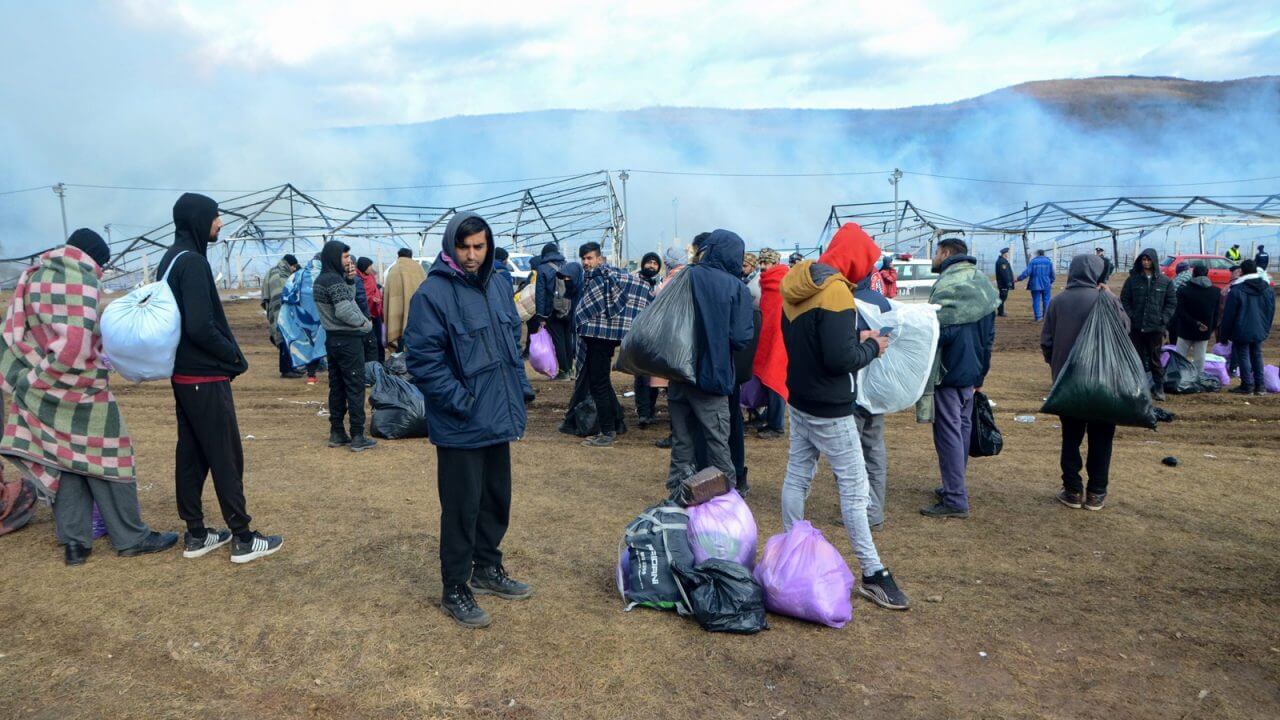Thousands of migrants, refugees, and asylum seekers are stranded in northern Bosnia, sleeping outdoors in freezing temperatures over the past few weeks, after a fire destroyed parts of the Lipa Emergency Tent Camp near the city of Bihać late last month.
The International Organization for Migration (IOM) estimates that there are nearly 3000 individuals, including women and children, living outdoors in the bitter cold and rain, and warned that the situation is not sustainable. However, authorities have found it difficult to relocate them—despite space being available in two official centres—due to differences between the central and local governments.
“What has been impossible is to get a consensus between the central government, which are, at least normally, in charge of dealing with this issue and the local authorities where these two centres are located to allow migrants access to these centres,” IOM Bosnia Chief of Mission Peter Van der Auweraert said. “There is international funding available. There is international assistance available. What has been the difficulty is to get a political consensus as to where these migrants could be accommodated.”
As countries like Turkey, Greece, and Hungary have made it more difficult for migrants and refugees to reach the wealthier nations of the European Union, Bosnia has in recent years become a central point of passage for those making their way into the continent. The Balkan nation is not part of the European Union, but it shares more than two-thirds of its borders with Croatia, a member state.
However, the increasing presence of migrants and refugees there has fostered anti-migrant sentiments among local authorities and populations. Given the high rate of decentralization in Bosnia and the power of local governments, relocation of vulnerable migrants and refugees has become very challenging.
EU foreign policy chief Josep Borrell in a statement on Tuesday blamed the crisis on the “dysfunctioning governance” in Bosnia and said that though the central government wanted to send the migrants to a nearby centre (which could host all of them and was refurbished with €3.5 million EU support), the move was blocked by local officials.
The leader further stressed the need for urgent action to alleviate the suffering of the individuals, while also pointing to the fact that the situation only highlighted the need for a new European Pact on Migration and Asylum, which is already being discussed by EU states. No country from the bloc has offered to take in migrants or refugees from Bosnia as of now, while Croatia has been accused of violent border pushbacks.
In more positive developments, however, migrants at Lipa camp have reportedly started accepting food again from aid workers after a four-day hunger strike, when they protested against the dire conditions at the camp. The secretary of the Red Cross in Bihać, Selam Midzic, told klix.ba that people accepted food again after he and his fellow aid workers talked to them and “explained to them that intensive work is being done to improve their current living conditions.” The Bosnian government has promised that Lipa will be rebuilt with water and electrical service and be ready to permanently house migrants by April.
Thousands of Migrants Still Stranded in Bosnia After Fire in Lipa Camp
However, authorities have found it difficult to relocate them – despite space being available in two official centres – due to differences between the central and local governments.
January 7, 2021

SOURCE: BALKAN INSIGHT
